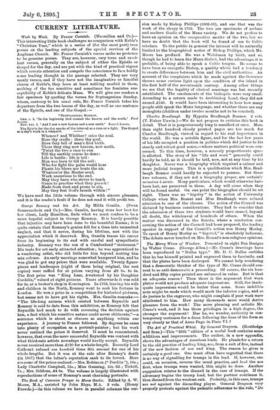sion made by Bishop Phillips (1605.16), and one that was
the work of the clergy in 1765. The two are specimens of archaic and modern Gaelic of the Manx variety. We do not profess to have an opinion on the comparative merits of the two, but we have no doubt that the book will be found of use to Celtic scholars. To the public in general the interest will be naturally limited to the biographical notice of Bishop Phillips, which Mr. Moore has prefixed. He was a Welshman by birth, and so, though he had to learn the Manx dialect, had the advantage, it is probable, of being able to speak a Celtic tongue. He seems to have been an energetic Bishop, a quality which had a tendency to create differences between him and the civil authorities. An account of the complaints which he made against the Governor throws some curious light upon the condition of the island in the first half of the seventeenth century. Among other things we see that the legality of clerical marriage was but recently established. The emoluments of the bishopric were very smell. According to a return made to Archbishop Laud, they did not exceed £140. It would have been interesting to hear how many people still speak the Manx language, and whether there are any monoglots (children under twelve months not to be counted).








































 Previous page
Previous page